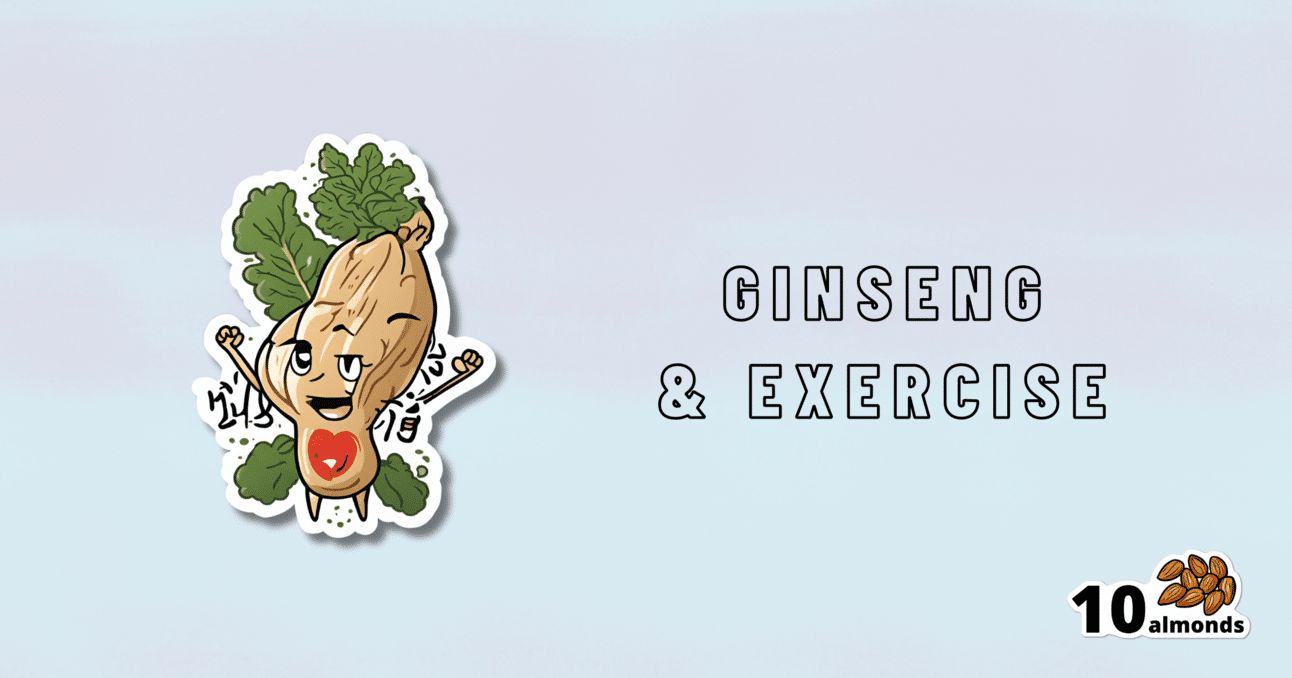Exercising With Less Soreness!
Ginseng speeds up muscle recovery and reduces fatigue, improving athletic performance. Find out how this ancient remedy can benefit modern science.

An Ancient Sports Drink & Healing Potion, Now With Modern Science?
Ginseng has many health benefits, we talked about 8 of them in this previous edition of 10almonds:
…but we’ve somehow never yet done a Monday’s Research Review for it! We must do one, one of these days. For now though, it’s Saturday’s Life Hacks, and we’re here with…
Speeding up recovery after muscle damage
We talked about this topic before too:
Overdone It? How To Speed Up Recovery After Exercise
…which gives very good advice (including some supplements that help), but was published before the latest science that we’re going to talk about today:
A team of researchers all so very recently found that ginseng also reduces muscular fatigue and, importantly, hastens recovery of muscle damage caused by exercise.
And that’s not all…
❝It should also be noted that, by reducing fatigue, taking ginseng on a regular basis may also help reduce the risk of injury, particularly in the case of muscles or ligaments, which can in turn improve athletic performance.❞
This means that it can be taken regularly and prophylactically, as they found:
❝taking ginseng systematically for a long time can mitigate the response of the biological markers, mainly creatine kinase (CK) and interleukin 6 (IL-6), responsible for exercise-induced muscle damage and inflammation.❞
You may be thinking “isn’t creatine good?” and yes, yes it is:
Creatine: Very Different For Young & Old People
…however, creatine kinase is not creatine. Creatine kinase (CK) is an enzyme that affects the creatine (to put it in few words, without getting into the fascinating biochemistry of this). Now, it’s necessary for us to have some CK (or else we wouldn’t be able to do what we need to with the creatine), but elevated levels often indicate some sort of problem going on:
Approach to asymptomatic creatine kinase elevation
…so ginseng keeping those things balanced is a good thing.
The study
We’ve talked a lot about the findings and what they mean, but if you’d like to read the paper for yourself, you can read it here:
Effect of Ginseng Intake on Muscle Damage Induced by Exercise in Healthy Adults
Where to get ginseng
If you’d like to take ginseng as a supplement, then there are many ways to do so, with the most common being capsules or ginseng tea, which has an interesting and distinctive taste, and is very refreshing. Here are examples on Amazon, for your convenience:
Enjoy!
Share This Post
Learn To Grow
Sign up for weekly gardening tips, product reviews and discounts.




